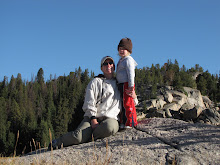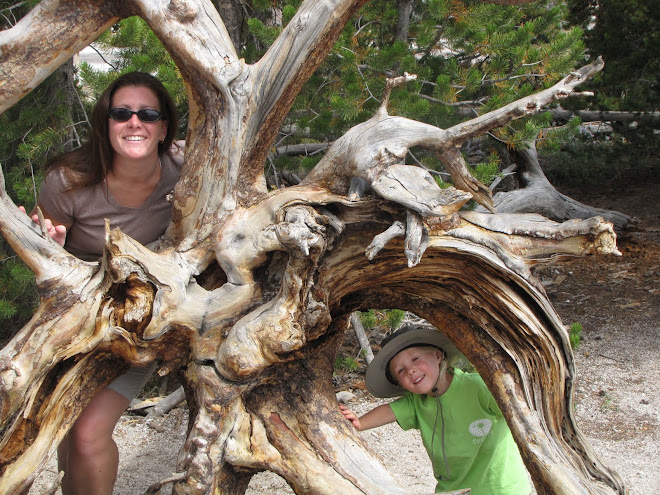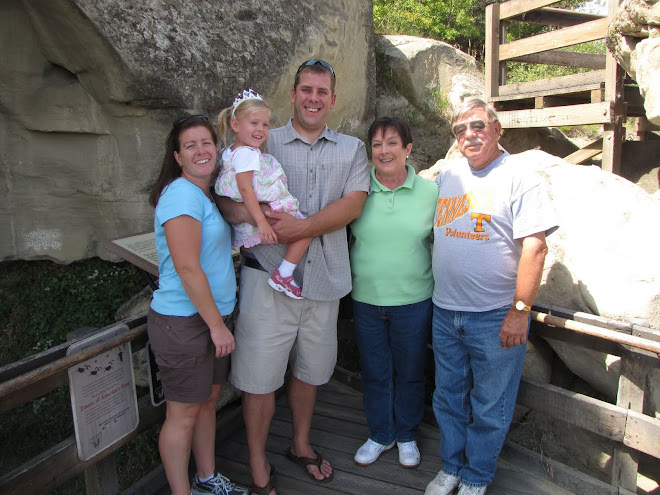When Courtney and I first got married we lived in a duplex about 1 mile from our church and 1 mile from the hospital where she worked. Believe it or not, I rode my bike to work sometimes... We had sidewalks, and I knew the people that lived in the duplex with us, as well as, the people next door to our side of the duplex and the person that lived on the other side of the duplex. I really never thought about how that simple arrangement actually helped me to be a better Christian…
I recently read, “Sidewalks in the Kingdom: New Urbanism and the Christian Faith” by Eric Jacobsen. Great book! The more I think about community and its importance to the Christian faith the deeper I am drawn into an understanding of what true community actually could be or should be.
I have been suspicious for some time that we (our culture) have no idea what true community looks like and more over most of us don’t know we even need it. I digress…Ipods, Notebooks, Cell phones, 25 minute to 1 hour commutes in our cars, Digital Video recording, the list is endless…these things are wonderful tools but slowly they all pull us a little further away from the experience of community. Now I still own a cell phone, etc…just be aware of the danger of being atomized by our own cool devices.
Back to my story. After we left Lexington, KY we moved to Richmond, VA so I could chase a Master’s degree. We bought our first home. It was an older 1940’s home that had a detached garage and an old chain link fence. Thanks to those walks from the garage to the house each day we became good friends with our neighbors on each side of us and life long friends with the son of the neighbor to the east. The neighborhood had no sidewalks, but it was built to walk around and we spent many afternoons running and walking those streets. It took me 3 minutes to get to seminary and 5 to 10 minutes to get to our church and Court was only about 5 minutes from her hospital. Naïve as we were, we didn’t realize the gift that neighborhood was to our lives.
We moved to Wilmington, NC a sprawling suburban city in 2003 and I had a bunch of ideas about where we should live. I wanted a brand new home, because I got tired of fixing the old home in Richmond. I wanted a privacy fence and a 2 car attached garage. I didn’t want to live far from church, but a 20 minute commute seemed like a small price to pay for so many of the things I believed I wanted.
Looking back…Our time in Wilmington has been great, the church is a God send. However, I believe I personally fell short of the call of Christ to live interdependently. I have not known a single neighbor during our stay in Wilmington and we have actually had next door neighbors come and go without even saying hello. I am embarrassed to admit that. I spend a minimum of 35 minutes a day in my car traveling to and from work and sometimes more. I pull into my driveway and close my garage rarely walking into my front yard. I never see my neighbors in back because of a privacy fence I actually paid $2500 to own. I have no reason to go outside because until recently, when I gave up digital cable, I always had at least 5 shows recorded to watch at anytime.
“Sidewalks in the Kingdom” challenges my old way of thinking and for that matter challenges the accepted American Dream. This will actually be a two part blog, and we will deal in this first part with the idea of interdependence. The book “Sidewalks in the Kingdom” makes an assertion that Christianity is about interdependence. (One body in Christ made up of many parts…) For any of us to truly experience the Kingdom of God we have to be in community with others, living interdependently. This idea is the opposite of the American dream of independence that fueled the Suburban sprawl of post WWII America.
IMPORTANT QUESTION: Does the suburban sprawl which promotes individualism have anything to do with the rapid and steady decline of Christianity in America post WWII? I believe it is impossible to be a meat of the word Christian in the absence of true community. Knowing Christ has to be about knowing the meaning of Loving Your Neighbor.
The further we sprawl the less we experience community. We spend more time alone in our cars and our houses have less character. New home develops would never put a rental duplex next to a home owner, so the potential for our relationships to vary is less. Sidewalks are a thing of the past, because they take up to much space.
A Few Things important to True Community:
Multi-generational
Human Interaction
Time (spent saying hello)
Time (spent walking the sidewalks and stopping for a brief chat)
Time (spent leaning over a chain link fence talking about the bad storm the day before)
The time thing is tough; our culture prevents people from living next door to each other for fifty years. The senior adults at my church understand True Community because they had the time to allow it to develop. I do believe our emerging generation faces some real challenges when it comes to finding true community. I don’t have all the answers, but I do believe we could think more carefully about where we live. If we live in neighborhoods that allow us to interact more we have a greater likelihood of becoming interdependent.
Do we live in a neighborhood that is multi-generational, racially diverse and socio-economically varied?
Do we live in a neighborhood that is close to our market places, our jobs and social experiences? (less time in a car more time with people, walking, saying hello, talking at the edge of the fence)
Do we live in a neighborhood where we know our neighbors?
Ultimately, this is on us. Do you know your neighbors? It is the Great Commandment. I could have spent more time on my porch these last few years, etc…I’ll plead ignorance. Like so many I had compartmentalized my community to the students I work with and the church I attend. The failure of my thinking was, I have other neighbors.
“Sidewalks in the Kingdom”, reminded me that I am a better neighbor when I live in a neighborhood that is designed to promote community. This generally means pre WWII or New Urban in nature. They do exist. We all cannot move to a new neighborhood, but we all should think of ways that we might over come the road blocks to community that post WWII Suburban sprawl promotes. In doing so maybe we’ll begin to find answers to the rapid decline of Christianity in this country along the same time frame. Maybe Christians will realize and revive the idea that community and interdependence make us Christians not programs and events.
Next week I’ll get into the 2nd part of the book, I was surprised that I enjoyed it. It was about the importance of technical design. Why the way a building looks is important?
Wednesday, February 20, 2008
Subscribe to:
Post Comments (Atom)




No comments:
Post a Comment